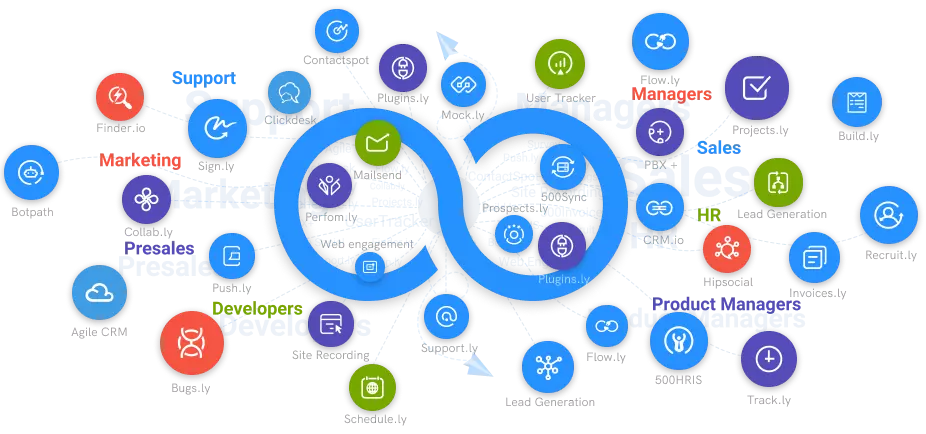Low Code Platform- Features to Consider
The way that businesses create and build apps for business processes has been changed by low-code application platforms. Projects can be carried out even by non-technical people and professional developers who have little to no coding experience. Users can construct applications or design a process without the help of software engineers or experienced developers.
#1
Functional and Scalable App
#2
Intuitive Drag-and-Drop Editor
#3
Less Coding Knowledge Approach
#4
Cross-Device Functionality
#5
Professional App Development
#6
User-Friendly Interface
#7
Availability of Visual Tools
#8
Easy App Maintenance
#9
Unbelievable pricing - the lowest you will ever find
#10
Everything your business needs - 50 apps, 24/5 support and 99.95% uptime
We'll review the numerous things businesses need to consider before employing a low-code application platform.
User Interface Of The Application
You must make sure the low-code app platform you employ has an application interface that increases client happiness and is user-friendly.
A user-friendly tool user interface makes a favorable first impression and allows users to interact with applications. Additionally, by saving users' time and effort, an optimized UI aids in turning them into devoted consumers. As a result, you can amass a sizable clientele using a low-code app platform with improved UI features.
Setting Configurations
To enable team members to manage the apps independently, a low-code application development platform must include necessary configuration tools and settings. Through the platform, the members must gain access to the database and set up login and authorization settings.
Configuration options aid in keeping servers, programs, and computer systems consistent. To facilitate quicker problem fixes, a low-code app platform must contain configuration settings to control complicated apps and software systems.
Adaptable Templates
A successful low-code app platform must offer pre-made templates for diverse business process automation. To minimize manual efforts to locate new ones and the dangers associated with developing a system, it is crucial to ensure that the platform you choose offers configurable templates.
Cloud Infrastructure Automated upgrades provided by cloud infrastructure accelerate network performance and product deployment. In addition, automatic scaling provided by the cloud enables analysis of server resources such as virtual machines, internet connectivity, etc. in response to defined conditions such as traffic or utilization levels. You must therefore confirm that your app development platform can be installed on a cloud infrastructure. If the platform supports the cloud and is beneficial for businesses, the process of developing apps becomes more efficient.
Simple and Scalable
A low-code app development platform needs to help people solve straightforward problems while still having the capacity to handle more complicated problems down the road. By integrating with the skill levels of the workforce, it is crucial to ensure that the platform you use enables you to experiment with new products, integrations, features, etc.
When building and designing apps, integrating several platforms and their processes enable you to make greater use of data from various sources. Use a low-code application development platform, then, that interfaces well with both the workforce and currently available apps.
Conclusion
For corporate enterprises, designing and developing apps is made simpler by low-code application platforms. In fact, low-code platforms enable developers with little to no coding experience to create effective applications. When selecting an effective platform for their firm, however, organizations must take into account a few key elements and suggestions.





